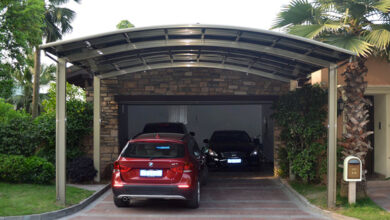
What Causes Cracks in Plaster
Are you concerned that you have small cracks in your walls? If so, you shouldn’t panic, but you should do something about it.
There are plenty of reasons for cracks to appear on the walls in your home, and in most cases, the solution is easy and cheap. After you learn what causes cracks in plaster, you can easily fix the crack or have someone fix it for you.
Here is what you should know about cracks in plaster walls.
Table of Contents
The Drying Process
Plaster is a material that is applied to the walls in order to provide a smooth surface. However, cracks can occur in the plaster due to the drying process.
The plaster is composed of water, Portland cement, and sand. When the plaster dries, the water evaporates and the plaster shrinks. This can cause the plaster to crack. In addition, the plaster can also crack if it is not applied evenly or if it is applied too thick.
Shrinkage Cracks
There are many potential causes of shrinkage cracks in plaster, but the most common cause is simply the shrinking of the plaster as it dries. This is especially common in hot, dry weather, or if the plaster has been improperly mixed.
As the plaster dries, it shrinks slightly, and if this shrinkage is not even across the surface, it can cause cracking. Other potential causes of shrinkage cracks include settlement of the foundation or walls, poor-quality plaster, or thermal expansion or contraction due to changes in temperature.
Structural Movement
There are several reasons why plaster can crack, but the most common reason is structural movement. This can be caused by a variety of things, such as the settlement of the foundation, movement of the framing, or even thermal expansion and contraction.
All of these forces can put stress on the plaster, causing it to crack. In some cases, the cracks are simply cosmetic and pose no threat to the integrity of the structure. However, in other cases, the cracks can indicate a more serious problem that should be addressed.
Thermal Expansion and Contraction
Cracks in plaster walls are most likely caused by thermal expansion and contraction. When the temperature outside of the walls changes, the plaster expands and contracts.
This can cause the plaster to crack if there is not enough flexibility. The expansion and contraction can also be caused by changes in humidity. If the humidity decreases, the plaster will contract and may crack.
Impact Damage
When something hits a plaster wall hard enough, it can cause plaster cracks. Treat this as urgent and look for a “plaster repair near me” to avoid costly repairs down the road. The amount of damage depends on the force of the impact and the type of plaster used.
If the plaster is old or has been weakened by water damage, it is more likely to crack. Cracks can also occur if the plaster is applied too thin or if it is not properly supported.
Read More About Cracks in Plaster
There are many reasons why cracks form in plaster walls. The most common cause is the settling of the house or shifting of the foundation, which puts stress on the plaster and can cause it to crack.
Other causes include poor-quality plaster, incorrect mixing of plaster ingredients, inadequate curing of plaster, or thermal expansion and contraction. To prevent cracks in plaster, make sure to use high-quality materials and follow the manufacturer’s instructions for mixing and curing the plaster.
Did you enjoy reading this article? If so, then be sure to check out the rest of our blog for more!








